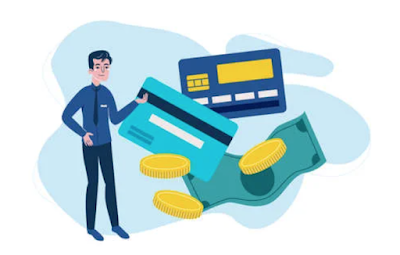Credit Card Benefits: Beyond Rewards - Unraveling Price Protection, Extended Warranty, and More
Credit cards are not just tools for making purchases; they come with a plethora of benefits that can enhance your shopping experience and protect your purchases. Beyond the attractive rewards and cashback offers, credit card benefits include valuable features such as price protection, extended warranty, purchase protection, and more. In this article, we will explore these lesser-known credit card benefits, empowering you to make the most of your cards and enjoy added protection and convenience while shopping.
Price Protection:
Price protection is a unique benefit offered by some credit cards that allows you to receive a refund if you find a lower price on an eligible item shortly after making a purchase. This feature provides peace of mind, knowing that you won't miss out on better deals.
Extended Warranty:
Many credit cards automatically extend the manufacturer's warranty on eligible items purchased with the card. This extension can add significant value, as it protects your purchases beyond the standard warranty period, saving you from unexpected repair costs.
Purchase Protection:
Credit cards with purchase protection offer coverage against theft or damage for a limited period after the purchase date. If your newly bought item is stolen or damaged, the credit card issuer may reimburse you for the purchase cost, subject to certain terms and conditions.
Return Protection:
Return protection allows you to return eligible items within a specified period if the merchant refuses to accept the return. The credit card issuer may provide reimbursement for the item's purchase price, helping you avoid getting stuck with unwanted purchases.
Travel Benefits:
Many credit cards come with travel-related perks, such as travel insurance, trip cancellation/interruption coverage, rental car insurance, and airport lounge access. These benefits can add significant value when you travel, providing peace of mind and saving you money on travel-related expenses.
Concierge Services:
Certain premium credit cards offer concierge services that can assist with booking reservations, arranging travel plans, and even finding exclusive experiences. This personalized assistance can elevate your lifestyle and save you time.
Fraud Protection:
Credit cards typically offer strong fraud protection, ensuring that you won't be held responsible for unauthorized charges. Promptly reporting any suspicious activity is crucial to benefit from this protection fully.
Price Matching:
Some credit cards provide price matching, where the issuer refunds the difference if you find a lower price on an item you recently purchased. This benefit can save you money and encourage confident shopping.
Conclusion:
While credit card rewards are appealing, exploring the lesser-known benefits can provide additional value and security in your financial life. Price protection, extended warranty, purchase protection, and other benefits offer a safety net for your purchases, ensuring that you get the most value out of your credit cards.
Before choosing a credit card, research the benefits offered by different issuers and select one that aligns with your lifestyle and shopping habits. Understanding the terms and conditions of these benefits is essential to maximize their value. By taking advantage of these credit card benefits, you can shop with confidence, travel with peace of mind, and protect your purchases from unexpected surprises. Remember, credit cards can be valuable financial tools beyond just earning rewards - they can provide convenience and protection that add value to your everyday transactions.



























